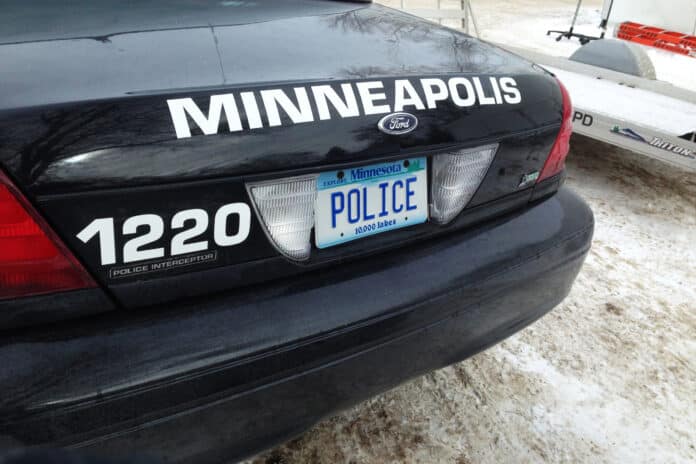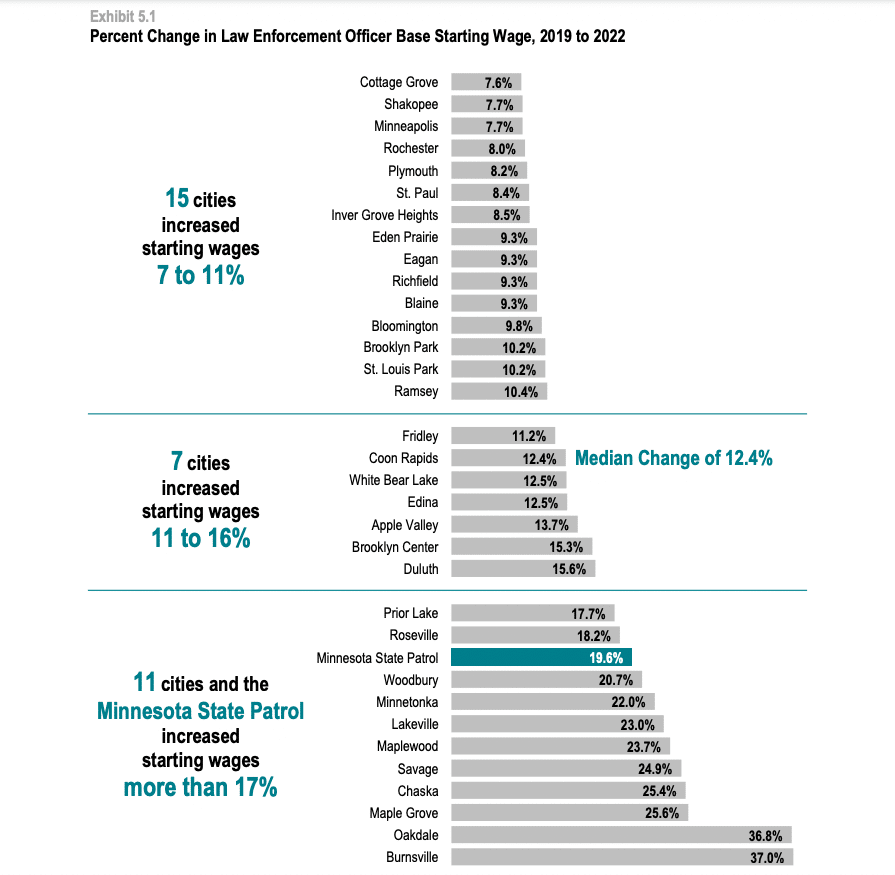
According to a report issued by the Office of the Legislative Auditor, the salaries of law enforcement officers with the Minnesota State Patrol increased faster than the salaries of police officers employed by many major Minnesota cities.
The Office of the Legislative Auditor (OLA), a state agency that conducts financial reviews of government departments and programs, is charged with examining the compensation of state troopers and police officers every three years through 2030. The OLA’s 2024 report, which looked at law enforcement pay in 2022, was released earlier this month.
In their report, the OLA reviewed police officer salaries and benefits in 34 cities including Minneapolis, St. Paul, Bloomington, Duluth, Rochester, Brooklyn Park, Eden Prairie, Plymouth, Maple Grove, Minnetonka, Shakopee, Edina, Ramsey, and Chaska.
Of all the 34 cities that were reviewed, the city of Burnsville paid their police officers the most, a base starting monthly wage of $6,717 per month. Across twelve months, the annual income of a Burnsville police officer is roughly $80,604. Fridley placed the lowest amongst the 34 cities that were reviewed. Police officers in Fridley make a base starting monthly wage of $4,926, roughly $59,112 per year.
The median base starting monthly wage for police officers in 2022 for all 34 cities was $5,677, roughly $68,124 per year. Regarding pay increases, the OLA’s report states that from 2019 to 2022, “the median increase for city police was 12.4 percent.”
Meanwhile, law enforcement officers with the Minnesota State Patrol received a base starting monthly wage between $5,766 and $5,916 per month in 2022 — up to $70,992 annually. However, this salary is a significant increase from years past, according to the OLA’s report.
Between 2019 and 2022, a mixture of legislatively mandated pay increases and contract negotiations increased base starting state trooper pay by nearly 20%. As such, law enforcement officers with the Minnesota State Patrol now have a larger starting base monthly wage than the median starting base monthly wages of police officers with the Minnesota cities reviewed by the OLA.
“However, the base top wage that could be earned by State Patrol troopers was 8 percent lower than the median top wage available to police officers in the cities we examined,” the report says.
With nearly 600 uniformed officers, the Minnesota State Patrol was created in 1929 to police Minnesota highways. The agency’s duties have expanded to include protecting the Minnesota State Capitol and providing security for state officials.
While the 20% pay increase for state troopers is significantly larger than the 12.4% median increase received by municipal police officers, nine of the 34 Minnesota cities examined by the OLA have increased their starting police officer pay by more than 20%. These cities include Burnsville, Maple Grove, Chaska, and Minnetonka.
Compensation for law enforcement officers has become a topic of intense discussion, particularly in Minneapolis. Late last year, the Minneapolis City Council rejected a measure to offer sign-on and retention bonuses to city police officers. Those bonuses were rejected by a vote of 8-5.
Despite Minneapolis’ significantly increased levels of crime, the city pays their police officers a lower base starting monthly wage than police officers in cities such as Inver Grove Heights, Oakdale, Lakeville, Rosemount, Maplewood, Woodbury, Edina, and others.

From 2019 to 2022, Minneapolis’ base starting wages for police officers grew slower than nearly every other city on the OLA’s list. Over the same three-year time period, Minneapolis was ranked last for growth in “top wages” for police officers.
The Minneapolis Police Department remains chronically understaffed.








